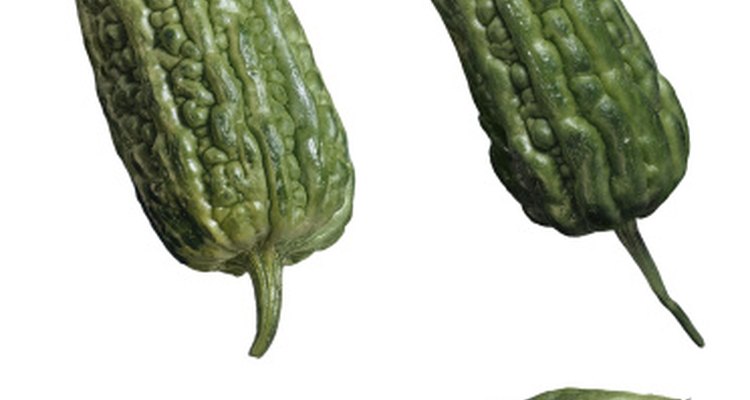
Acne, a chronic inflammatory skin condition, is caused by overactivity of your sebaceous, or oil-producing, glands. According to Family Doctor, washing your face twice a day with a mild soap can help. Your dermatologist may also prescribe antibiotics and topical treatments, such as retinoids, to treat your acne. Some people turn to herbal remedies, including bitter melon, to alleviate acne. Ask your doctor before using bitter melon.
Acne Features
Acne results when excess oil and dead skin cells block the hair follicles, causing whiteheads and blackheads. Family Doctor notes that while acne is not a bacterial infection, bacteria does play a role, growing in blocked follicles and producing waste that causes inflammation in the form of pustules and papules, or pimples. A hormone called androgen, which stimulates oil production, contributes to acne as well. If the inflammation is severe enough, ruptured follicles and cysts may occur.
Bitter Melon Traditional Uses
Bitter melon, botanically known as Momordica charantia and also called the balsam pear, is an annual tropical plant grown in Asia, Africa, South America and India. The orange fruit is bitter but edible, and has been traditionally used by herbal and Ayurvedic healers for asthma, digestive problems, high blood pressure, diabetes, tumors and skin diseases. Although the seeds and leaves of the plant have been employed in herbal remedies, Blue Shield Complementary and Alternative Health notes that the fruit is both the safest part of the plant and the part most commonly used for medicines.
Constituents
The fruit of the bitter melon contains a glycoside called mormordin, as well as charantin, a blood sugar-lowering agent composed of steroids. Drugs.com, which provides peer-reviewed information to consumers, adds that bitter melon also contains a blood sugar-lowering peptide called polypeptide-P. The website credits bitter melon with potent hypoglycemic -- or blood sugar-lowering -- effects, as well as antimicrobial and anti-inflammatory qualities.
Research
Herbalists recommend bitter melon to treat acne because of its antimicrobial and anti-inflammatory effects. Although human clinical trials are lacking, there is some scientific research supporting the belief that bitter melon can act against bacteria and ease inflammation. In a clinical study conducted by J. Sankaranarayanan and colleagues and published in 1994 in the "Indian Journal of Pharmaceutical Sciences," an extract of bitter melon used in conjunction with other herbal extracts, showed antibacterial activity. Another clinical study, conducted by S. Umukoro and R.B. Ashorobi and published in the May, 2006 issue of "African Journal of Biomedical Research," showed that extracts of bitter melon reduced swelling and inflammation in the paws of rats.
Application
To use bitter melon for acne, you can follow the recommendations of Blue Shield Complementary and Alternative Health and eat one small melon daily; the website warns that the fruit has a bitter taste which not everybody can tolerate. You can also drink 2 oz. of the fresh juice daily. Significantly exceeding the recommended dose can cause abdominal pain and diarrhea.
Safety Considerations
According to BSCAH, bitter melon is safe at low doses if used for a month or less. Drugs.com adds that there are no published reports of serious adverse effects in adults given the recommended dosage, but that the red arils that surround the fruit's seeds are toxic to children. Bitter melon can lower blood sugar to the point of causing hypoglycemia, and can interact with prescription drugs. Ask your doctor before taking bitter melon. If you are pregnant or breast feeding, you shouldn't use bitter melon at all.
Related Articles

What Are the Benefits of Ashwagandha in ...

The Use of Neem Juice in Skin Care as ...
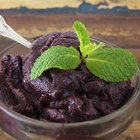
Acai Berry & Acne

Burdock Root for Acne
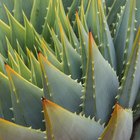
What Are the Benefits of Aloe Vera & ...

Arnica for Acne

Pomegranate Juice & Acne

Herbs For Melasma
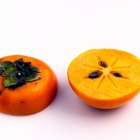
What Are the Benefits of Persimmons?

Grapefruit Skin Benefits

Pycnogenol and Acne

Chasteberry for Acne
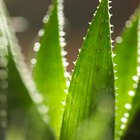
Does Aloe Vera Juice Treat Skin Cancer?
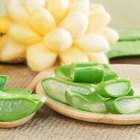
What Is Aloe Good For?

Can Herbs Flush Cellulite?
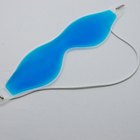
What Prescriptions Can Get Rid of Under ...

Are There Herbal Treatments for ...

Can Tri-Luma Be Used to Fade Acne Scars?

Hydroquinone & Dark Circles

How to Get Rid of Purple Scars
References
- Family Doctor: Acne--A Patient's Guide
- Drugs.com: Complete Bitter Melon Information
- Blue Shield Complementary and Alternative Health: Bitter Melon
- ijpsonline: Phytochemical, Antibacterial and Pharmacological Investigations on Momordica Charantia
- ajol.info: Evaluation of Anti-inflammatory and Membrane Stabilizing Property of Aqueous Leaf Extract of Momordica Charantia in Rats
Writer Bio
Carol Sarao is an entertainment and lifestyle writer whose articles have appeared in Atlantic City Weekly, The Women's Newspaper of Princeton, and New Millennium Writings. She has interviewed and reviewed many national recording acts, among them Everclear, Live, and Alice Cooper, and received her Master of Fine Arts degree in writing from Warren Wilson College.
Photo Credits
Brand X Pictures/Brand X Pictures/Getty Images